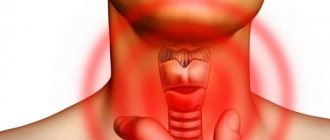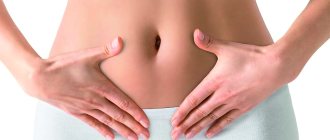Causes
The causes of this condition can be either physiological or pathological. Doctors strongly do not recommend self-medication until the underlying cause is identified, as this can blur the clinical picture and make it difficult to make an accurate diagnosis.
In most cases, dizziness is not a sign or symptom of a severe pathological process and occurs accidentally. The head begins to feel dizzy when you suddenly turn your head or body. In this case, the nerve endings of the vestibular apparatus are irritated, which provokes the symptom. The duration of the attack is up to several minutes, after which the state of health is restored.
Physiological
The physiological cause of dizziness during menopause is hormonal changes. Violation of the concentration of female sex hormones leads to hot flashes, headaches, sleep disturbances, and dizziness. Physiological causes of dizziness include:
- disorders of the psycho-emotional state, in which women complain of increased irritability and emotional sensitivity. The functioning of the nervous system and vestibular apparatus is disrupted, and dizziness develops.
- hot flashes, during which there is active functioning of the sweat glands with the subsequent development of intense heat. Such attacks increase the load on the blood vessels, after which a feeling of weakness, dizziness, and nausea is felt.
- fluctuations in blood pressure, which are caused by impaired functioning of blood vessels and a lack of female sex hormones. If preventive measures to prevent cardiovascular diseases are not followed, as well as with a poor-quality diet, by the age of 50, blood thickening and increased cholesterol levels are observed. With a significant increase in blood pressure, dizziness, headaches, and impaired concentration are observed.
- headache that occurs against the background of vascular spasms. The clinical picture is complemented by spots before the eyes and nausea. In severe cases, migraine develops.
- migraine - for some women, dizziness is an element of the aura that precedes a typical attack of severe headache.
When sleep disorders occur, the central nervous and cardiovascular systems suffer, immunity decreases, and overall well-being worsens. Regular lack of sleep often causes dizziness with headaches and nausea, and impaired concentration.
Pathological
The reasons that provoke dizziness are not always due to changes in the concentration of estrogen and progesterone. This symptom is characteristic of a number of pathological conditions. When complaining of dizziness, it is necessary to exclude the development and progression of the following pathologies:
- inflammatory processes in the middle ear: otitis media, cholesteatoma, as well as the consequences of surgery.
- traumatic brain injuries.
- somatic pathologies: arrhythmia, hypertension, coronary heart disease.
- Meniere's disease, which is accompanied by compression of the inner ear. Occurs when the integrity of the eardrum is damaged, a secondary infection occurs, as well as vascular disorders.
- cerebellar dysfunction.
- intoxications.
- pathologies of the cervical spine: osteochondrosis.
- stroke is a pathological process that is accompanied by cerebrovascular accident. It occurs against the background of obesity, decreased physical activity, hypertension, alcoholism, cardiovascular pathologies, and diabetes.
- syphilis of the temporal bones.
- pathologies of the nervous system: Parkinson's disease.
- mental disorders.
- vestibular neuritis - the symptom worsens when a woman turns her head or tries to stand up. The pathology has a rapid onset and tends to resolve itself indefinitely.
- perilymphatic fistula - dizziness is accompanied by tinnitus and unilateral hearing loss. Women often complain of concomitant nausea and vomiting.
What is menopause
Throughout life, a lot of physiological processes occur in the female body. One of them is menopause. Menopause occurs when the supply of active eggs runs out. During menopause, a gradual decline in the functioning of the ovaries occurs. This occurs due to hormonal changes, including a decrease in estrogen levels. This is what leads to pathological changes in the body.
Menopause is not a disease. This is a natural process and you should not be afraid of it. Menopause begins to form upon reaching 40-45 years of age. At first there will be long delays, and then critical days will disappear altogether.
We can talk about the final onset of menopause only when there has been no menstruation for a year or more. It is after this that a woman loses her ability to bear children. Successful fertilization becomes impossible. This is due to the suppression of ovarian function.
With the onset of menopause, a woman finally loses the ability to bear children.
During menopause, a woman's quality of life deteriorates. This is due to the presence of a number of symptoms caused by changes occurring in the body. During menopause, the body's protective functions decrease. That is why:
- likely exacerbation of existing pathologies;
- there is a high risk of developing new diseases, including cancer.
During the onset of menstruation and after menopause, a woman should visit a medical facility twice a year.
A gynecological examination is mandatory, since this is the only way to promptly detect the formation of pathological conditions and begin to eliminate them before complications develop.
It is difficult to cope with the onset of menopause from a psychological point of view. During this period, a woman becomes more sensitive to external factors. Any stress can instantly and significantly worsen your well-being and aggravate existing signs of menopause.
It is important to visit a doctor and follow his recommendations
Menopause is easy to endure only if you follow all the doctor’s recommendations. It is important over the age of 40 to monitor your health most carefully and reconsider your lifestyle.
Classification
During menopause, dizziness is classified depending on the stage of its development and the type of course. Taking into account the degree of severity, the symptom can be: mild, increasing, constant, transient. Depending on the clinical picture and characteristic complaints, doctors distinguish the following types of dizziness:
- cervicogenic – observed in patients with pain and limited mobility of the cervical spine;
- psychogenic – accompanied by anxiety disorders, depression, fog and heaviness in the head, lightheadedness;
- When fainting and pre-fainting, there is a feeling of “lightness” in the head, the skin turns pale, the heartbeat quickens, the eyes become dark, and sweating increases.
Taking into account how often dizziness bothers a woman, the symptom is classified into systemic and non-systemic. Systemic (or vestibular) dizziness is accompanied by a feeling of rotation, swaying of one’s own body. There are complaints of nausea, vomiting, hyperhidrosis, dark vision, hearing and balance deterioration.
Diagnostic difficulties
A doctor’s ability to diagnose dizziness during menopause is often limited by a lack of knowledge regarding the problem and the lack of necessary equipment. But determining the exact cause of dizziness is the basis of therapeutic action; based on the examination results, the doctor determines what to do to alleviate a specific symptom.
Doctors distinguish dizziness caused by changes during menopause from positional vertigo, characterized by the illusion of movement of one’s own body or surrounding objects without an objective reason. In this disorder, patients experience a feeling of rocking or leaning to the side. Dizziness is usually caused by a disorder directly in the center of balance, in the vestibular system, not caused by menopausal (hormonal) factors.
The need for differentiation is due to the fact that sometimes vertigo can be a symptom of some serious diseases: Meniere's disease, brain damage. Therefore, it is important to consult a doctor in time.
Signs
Having assessed the symptoms of dizziness in women, the doctor will be able to choose the most effective treatment. Dizziness may be accompanied by nausea, vomiting, and deterioration in general health. In severe cases, there is a concomitant development of migraine, caused by circulatory disorders in certain areas of the brain that are responsible for the functioning of the vestibular apparatus.
Depending on the cause, the clinical picture may be supplemented by the following signs:
- vomiting;
- ringing or noise in the ears;
- double vision;
- hearing impairment;
- increased sweating;
- headache;
- bouts of heat, which are replaced by sharp cold;
- general weakness, decreased performance;
- coordination disorders;
- deterioration of memory and concentration;
- disturbances of consciousness;
- nosebleeds;
- darkening of the eyes and the formation of “spots” and “lightning” before the eyes;
- increased nervous excitement;
- loss of orientation in space.
Changes in the cardiovascular system
According to statistics, symptoms indicating problems with blood vessels during menopause are observed in 72% of women. Typical manifestations:
- tachycardia;
- arrhythmia;
- bradycardia;
- dizziness;
- weakness;
- decrease and increase in pressure;
- angina pectoris.
Heart rhythm disturbances and heart pain usually do not go unnoticed, and rightly so. Ignoring symptoms can lead to myocardial infarction, stroke, and premature death.
Untimely treatment of atherosclerosis causes pathological changes. During menopause, blood vessels lose their elasticity, the lumens become thinner, and cholesterol deposits form on the walls.
Some women consider problems with arterial vessels to be of little significance. But even those who understand the seriousness of the pathology do not always know what signs can be used to determine that it is time to see a doctor.
Diagnostics
Manifestations of menopause are similar to a number of pathological conditions. To confirm the diagnosis, an in-person examination and interview of the patient is required. Basic diagnostics includes:
- general and biochemical blood tests to determine the concentration of hormones;
- urine analysis and coprogram;
- electrocardiograms;
- Ultrasound of the pelvic organs.
If any pathology is suspected, the doctor will additionally prescribe computed tomography and magnetic resonance imaging, Dopplerography, angiography, determination of hearing and visual acuity, and examination of the fundus.
A concomitant consultation with doctors of related specialties may be required: vertebrologist, vascular surgeon, endocrinologist, neurologist, ophthalmologist.
Treatment
The treatment method depends on the cause that caused dizziness during menopause. A holistic approach is recommended: correcting nutrition, drinking enough water, following a diet and rest regime, using medications, if necessary.
It is necessary to check the concentration of ferritin, hemoglobin, transferritin, B12 (to exclude anemia), identify and compensate for the deficiency of vitamins and microelements. Moderate physical activity is useful, walking in the fresh air at least 10,000 steps per day. To normalize the psycho-emotional state, yoga, pranayama, and consultation with a psychologist are indicated.
Medications
Your doctor may recommend taking several types of medications for dizziness. For blood clotting disorders and the risk of blood clots, blood thinning medications are indicated:
- Warfarin;
- Xarelto;
- Aspirin Cardio;
- Thrombo ACC;
- Cardiomagnyl Forte.
To normalize metabolic processes and restore oxygen supply to brain tissue, the following drugs are used:
- Vinpocetine;
- Phezam;
- Piracetam;
- Westinorm;
- Betaserc;
- Betahistine;
- Omaron;
- Glycine – for concomitant sleep disorders.
Medicines based on ginkgo biloba:
- Bilobil;
- Memoplant;
- Tanakan.
Medicines for hormone replacement therapy are used only for severe menopause with a pronounced clinical picture that cannot be eliminated with the help of alternative means.
Medicines are selected depending on the woman’s age, medical history, and concomitant complaints. The dosage, frequency and course of administration are selected individually.
Folk remedies
Traditional medicine is used as a supplement to medications, lifestyle modifications, and diet. Traditional medicine suggests using:
- motherwort;
- dog-rose fruit;
- meadowsweet;
- hawthorn;
- peony roots;
- mint herb"
- linden;
- clover;
- nettle
Plants are used to prepare medicinal decoctions, infusions, and tinctures. They can be taken in short courses for 10-14 days, after which they take a break.
The effectiveness of traditional treatment has not been fully studied. If you feel unwell, you should immediately consult a doctor.
Folk recipes
Folk remedies are widely used among the female population; they can be used to combat various manifestations of the condition. The advantage of this method is the minimum of side effects due to the use of natural ingredients.
Recipes for medicinal preparations for dizziness caused by menopause:
- 1 tbsp. l. hawthorn fruit, 1 tsp. peppermint, 1 tsp. white mistletoe. Pour 200 ml of boiling water over the mixture, leave for 15 minutes, use 0.5 cups after meals.
- 1 tsp. thyme, 1 tbsp. l. lemon balm, and 1 tbsp. l. chopped blackberry leaves. Pour the mixture with 1 cup of boiling water and leave for 20 minutes. Take 1-2 glasses after meals for 10 days.











